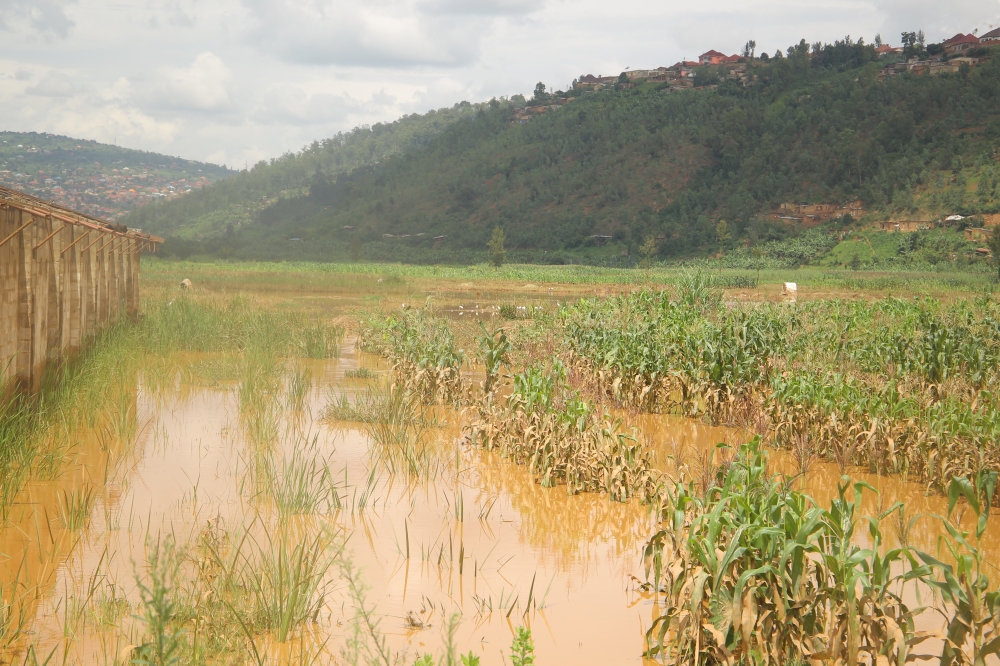

Rwanda is among three Sub-Saharan Africa countries which will share funding totalling $22 million to build resilience to flooding in three cities.
The project will improve vulnerable urban communities’ capacity to adapt to climate change in Dire Dawa in Ethiopia, Kigali in Rwanda, and Johannesburg in South Africa. Rwanda will use the funds to restore the lower Nyabarongo River watershed to reduce flood risk, landslides, and soil erosion.
ALSO READ: Nyabarongo floods continue to put road transport at risk
The part of lower Nyabarongo River watershed to be restored is in Kicukiro, Nyarugenge, and Gasabo districts, according to City of Kigali officials. As noted, Kigali faces pressing climate hazards, notably flooding and landslides, exacerbated by the country’s rugged topography and rapid urban expansion.
ALSO READ: 22 stations to monitor floods in Kigali City
Like most parts of the country, Kicukiro, Nyarugenge, and Gasabo districts, are characterized by steep slopes, with many homes exposed to the risk of landslides and flooding in downstream areas.
By adopting and implementing gender-responsive nature-based solutions to restore watersheds, riparian corridors, and urban green spaces, the project directly responds to risks like climate change-induced flooding, landslides, extreme heat, and biodiversity loss.
It also aims to address gender gaps in climate adaptation where at least 50% of the beneficiaries will be women, representing a shift in existing social norms.
The interventions include afforestation, reforestation, agroforestry, and urban tree planting—ultimately enhancing the resilience of 975,000 people in Kigali.
The Mayor of Kigali, Samuel Dusengiyumva, highlighted the importance of community-driven environmental initiatives saying the new project will also complement the City of Kigali campaign to plant three million trees.
The project will support the urban tree planting campaign, he said, facilitating the planting of trees through 2026, and creating over 5,000 green jobs.
Led by the International Institute for Sustainable Development (ISD) and World Resources Institute (WRI), and funded by Global Affairs Canada, the initiative aims to restore critical watershed areas and reduce flood risks, landslides, and soil erosion in Kigali.
It will be implemented by local partners.


